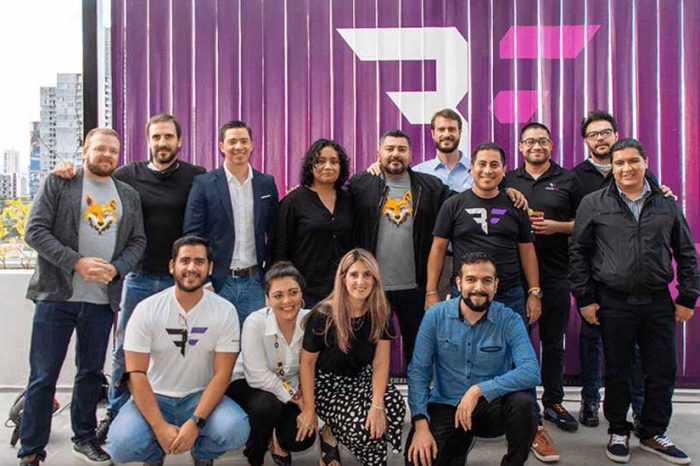Shopee, the Amazon of Asia, announces new job cuts in addition to about 7,000 employees already laid off in the last 6 months

The economic recession that started in the United States early this year is beginning to spread to the Asian market. Ecommerce giant Shopee, also known as the Amazon of Asia, becomes the latest tech company to announce a new round of layoffs.
According to a report from Bloomberg, Shopee has cut nearly 7,000 jobs in the last six months alone, after the latest cuts saw around 100 staffers being laid off. Yesterday, Shopee notified a number of employees in Singapore and China via emails that they have been let go from the company, Bloomberg reported. Four teams including staff HR staff, training, recruitment, and employee relationship management were affected.
In a memo to employees, Shopee chief executive Forrest Li explained that the company’s top objective for the next 12-18 months would be achieving self-sufficiency.
“Our number one objective for the next 12-18 months is achieving self-sufficiency. This means achieving positive cashflow as soon as we can. Right now, thanks to years of prudent action and hard work, we have a solid cash base that puts us in a safer position than many of our counterparts in the tech sector. However, we can easily run through this cash base if we are not careful, and with investors fleeing for ‘safe haven’ investments, we do not anticipate being able to raise funds in the market.”
“Now that global conditions have changed, we too must adapt. Reining in costs will be an important priority, not just for us, but across the industry,” Li added in the memo.
Per Bloomberg, Shopee had more than 67,000 people at the end of 2021. The 7,000 job cut represents about 10% of its total workforce. The company was founded in 2015 and currently operates in seven markets across Southeast Asia.
The global economic downturn that started in the second quarter of this year is beginning to have a major impact on tech companies. As we reported last month, over 32,000 tech workers lost their jobs in July. That number has since climbed to about 45,000 as of October, according to the latest tally from CrunchBase, a platform for finding business information about private and public companies.
Tech giants like Amazon, Google’s Alphabet, and Facebook’s Meta have all taken measures to rein in spending. Other companies like Coinbase, Shopify, Netflix, and Twilio have also announced layoffs.
Below is the full text of the memo Li sent to all Shopee employees.
“Dear Sailors,
We have made some difficult announcements lately. I know many of you would have seen negative reports about us in the media, and you may have been shaken by news of us shutting down operations in some markets. I am writing to you today to explain what is happening, and also talk about what we need to do in the next 12-18 months.
As you know, this is a turbulent period for our industry. When countries reopened, we lost the strong tailwinds we had during the pandemic. And then, the world was hit with a series of macro-economic blows, one after another: war in Europe, huge supply chain disruptions, soaring inflation, and slowing economic growth. It has been a brutal year for everyone, and the capital markets have plunged into turmoil. Some economists are predicting a global recession.
Sadly, we are not immune to these shocks. Every team has done its best to weather this storm so far. We have taken each new constraint in our stride and tried to adapt – even when doing so has required painful action. I know many of you have put in extra hours, made do with less, and tried to stay positive as we made these hard turns. Thank you for this.
We can now see that this is not a quickly passing storm: these negative conditions will likely persist into the medium term. Looking at the landscape ahead, the leadership team and I are making some decisions to help us not just survive this storm, but come out of it in as strong a position as possible. I am writing to ask for your support as we implement these plans.
Our number one objective for the next 12-18 months is achieving self-sufficiency. This means achieving positive cashflow as soon as we can. Right now, thanks to years of prudent action and hard work, we have a solid cash base that puts us in a safer position than many of our counterparts in the tech sector. However, we can easily run through this cash base if we are not careful, and with investors fleeing for ‘safe haven’ investments, we do not anticipate being able to raise funds in the market.
The only way for us to free ourselves from relying on external capital is to become self-sufficient, generating enough cash for all our own needs and projects. If we manage to do this, it will have huge implications for our future. We will have peace of mind, becoming less affected by the external ups and downs that are hurting us today. We will be more strong-footed, and less distracted, able to refocus on our own goals.
This is how I want Sea to emerge from this storm: in a position of certainty and independence, fully able to choose our own path.
To achieve this, we need to do two things:
-
- In the immediate term, we must find every way we can to reduce our operating costs. The more cash we save each day, the more time we can buy ourselves to weather out this storm. Every bit counts.
- Now and into the long term, we must establish a cost-sensitive culture across our organisation. In the past, we have focused on growth first, and sometimes growth at all costs. This was not a wrong approach, as global conditions were ripe with opportunities then. But now that global conditions have changed, we too must adapt. Reining in costs will be an important priority, not just for us, but across our industry. Whichever companies manage to do this the best will be the ones to emerge the strongest from this period of uncertainty.
It will not be easy for us to achieve this. But if we are all willing to pitch in, tighten our belts, and work together, I know we can make it happen.
Similar to what has been announced by many others in our industry, we will be tightening our expense policies, effective from 1 October (although I strongly encourage everyone to abide by them immediately). The full details are in the attached document, but these are the main points:
-
- Reimbursements for business travel will be capped at economy class flight fares, and USD 150 a night for hotel stays.
- We will be capping international business travel meal expenses to USD 30 per day.
- We will no longer reimburse internal or external meals or entertainment.
- For local car transportation, we will use the most economical service option provided by local ride booking or taxi services.
These new rules will apply to every Sailor, including myself and the entire leadership team.
In addition, the leadership team has decided that we will not take any cash compensation until the company achieves self-sufficiency.
I know that news like this can be difficult to accept. We are watching the world situation closely, and we will need to continue adapting as best as we can. I hope that I can count on your support and understanding as we try to get through this.
You will hear from me more frequently over the next few months. I will do my best to keep you updated on our situation and what we see happening in the world. If you have feedback or ideas, I welcome you to write to me. I may not be able to reply, but I will read and consider every message.
Thank you, Sailors, for all the effort you have put into building our company. Without your hard work, we would not have been able to touch millions of lives. Now, we need to again go through a transition that I know might be painful and stressful, on individuals as well as the collective. But if we can make this next big adaptation, our company will enter a new bound. Self-sufficiency is the key to our future success.
The next 12-18 months are crucial to the long-term health and longevity of our company. Let us do what we need to do to get through this together.
Forrest.”

